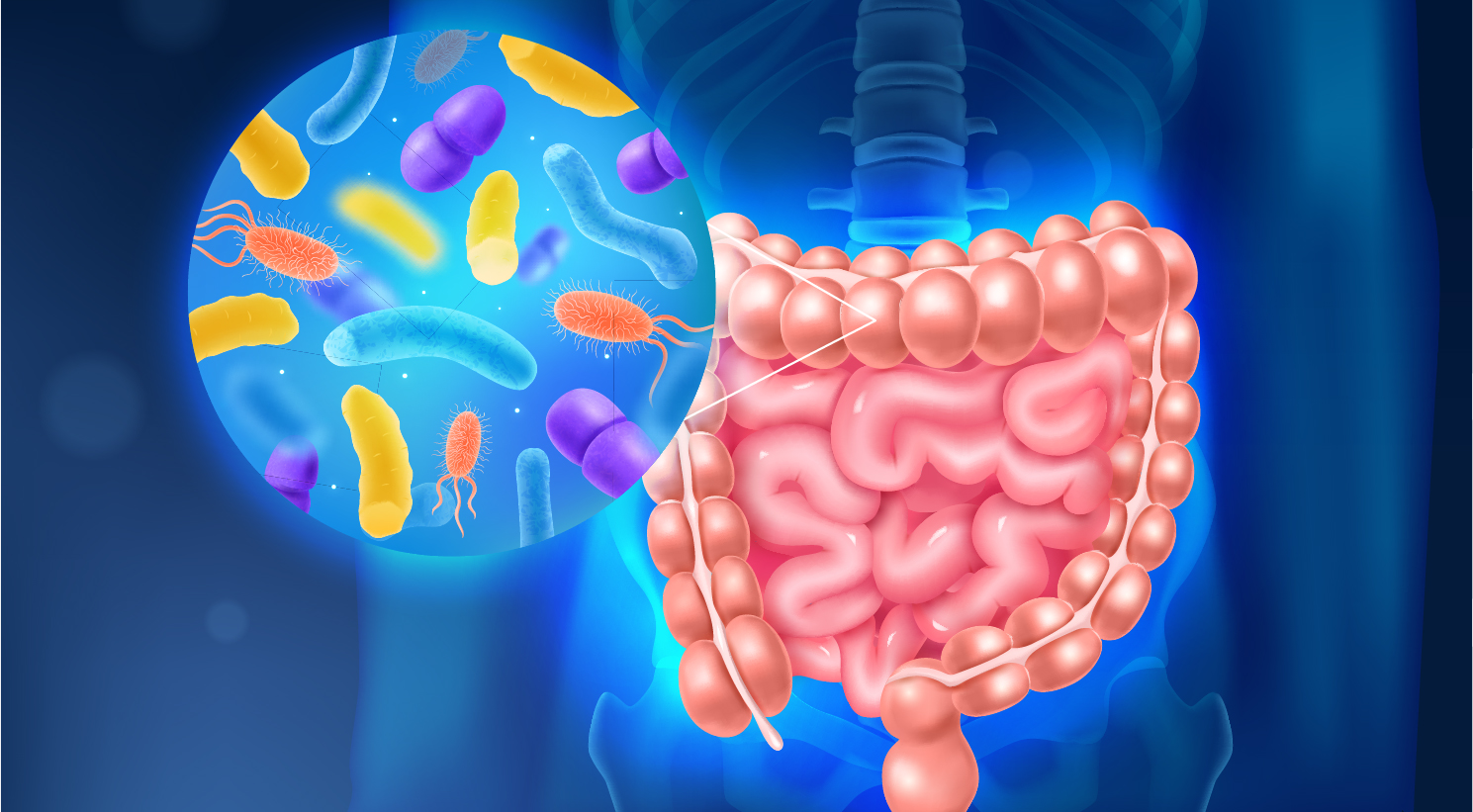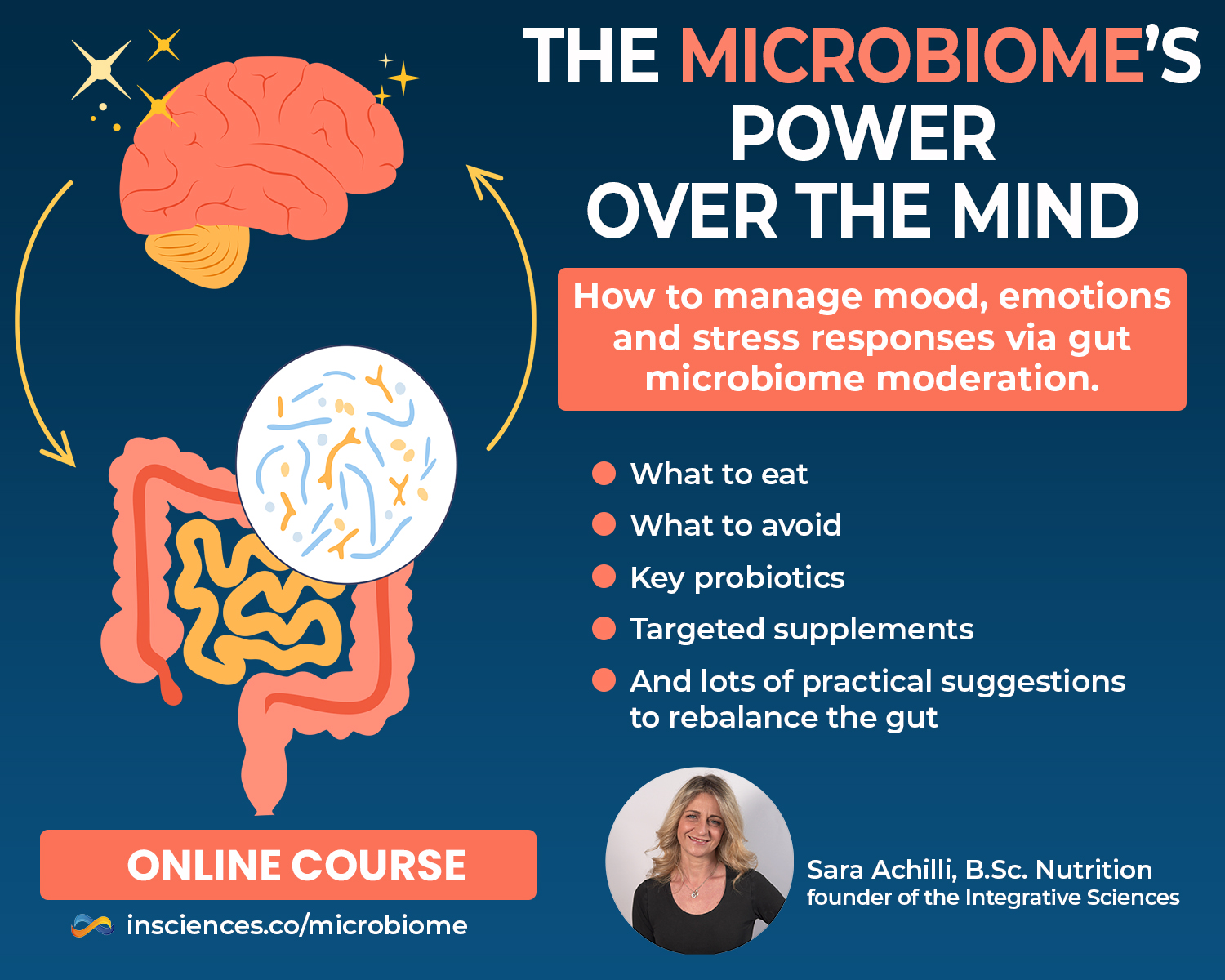
From Gut to Brain: The Microbiome's Impact on Mental Health
Aug 14, 2023The human body is a complex ecosystem, and at the heart of this ecosystem lies the microbiome. Before diving deep into the intricate relationship between the gut, microbiome, and the brain, it's essential to understand what the microbiome is and how it functions.
What is the Microbiome?
The microbiome, sometimes referred to as microbiota, encompasses the vast community of bacteria, yeasts, parasites, and viruses that reside primarily in the human intestine. While these microorganisms are distributed throughout the body, colonizing various barriers, our focus here is on the gut microbiome.
This interaction between intestinal microbes and their human host is symbiotic, proving beneficial for both. The human body offers a nutrient-rich environment, and in return, the microbiota provides elements crucial for our health. When these microbial communities are in balance, a state known as eubiosis prevails, which is vital for a healthy gut.
In this harmonious state, bacteria can produce substances beneficial for the body.
The microbiome works in tandem with our body's cells, supplying them with materials they wouldn't otherwise obtain. It plays a pivotal role in synthesizing vitamins like vitamin K and B group vitamins, which are essential for the nervous system, energy production, hair and skin health, and liver function.

Protective and Structural Roles of the Microbiome
Beyond its metabolic functions, the microbiome also serves structural and protective roles. One of its primary activities is competing with potentially harmful bacteria, producing substances that neutralize them, altering the gut pH, and depriving them of nutrients. This action safeguards the mucosa barrier's integrity.
The gut mucosa, comprising bacteria, mucus, and epithelial cells, acts as a defense against potentially harmful elements present in food residues and organic secretions. It's the second-largest surface in the body, spanning an area equivalent to a tennis court. This barrier is crucial in defending against antigens and pathogens.
A compromised intestinal barrier can initiate an inflammatory response and activate the immune system. The microbiome also plays a role in maintaining the integrity of tight junctions between intestinal cells and the trophism of the intestinal mucosa.
The Microbiome and the Brain
Microbes and nerve cells in the gut communicate with each other and with the brain all the time, via the so-called gut-microbiome-brain axis. At the centre of this axis, we find the vagus nerve, a bundle of nerves that starts directly from within the cranium and spreads out across the whole body innervating the entire gastrointestinal tract.
This connection explains the famous “butterflies in the stomach” effect we get when we’re nervous or that sense of “feeling gutted” when we are upset.
In addition to the brain-gut connection, within the gut there is an autonomous enteric nervous network (that is why the gut is known as the second brain) that reacts directly to stimuli coming from intestinal bacteria, such as short chain fatty acids produced by the microbiome.
When there's a decline in neurotransmitter production, individuals may experience heightened levels of stress, anxiety, anger, and depression.
Serotonin, known as the 'happiness neurotransmitter', is involved in various biological processes including an increase in bowel mobility, neuron regulation in the central nervous system where it excites some neurons and inhibits others, in bone metabolism and in the development and repair of organs like the heart and liver.
More than 50% of dopamine, the movement, excitement, learning and reward neurotransmitter, and of Gaba, a neural activity inhibitor neurotransmitter, are produced by the gut.
The microbiome is also responsible for the production of short-chain fatty acids such as butyrate, as we mentioned previously, that are an important source of immediately available energy for the brain.
It is therefore clear that, if the gut microbiome is damaged or altered and microbial balance is lost, pathogenic bacteria can interfere with the production of neurotransmitters and other metabolites, secreting chemicals that can be damaging if they interfere with the synthesis of hormones and vitamins.

Dysbiosis: A Disrupted Balance
Stressful experiences, such as trauma or loss, can disrupt the gut's balance. However, other stress sources, like antibiotics and certain drugs, can significantly alter the microbiome and lead to inflammation.
An altered microbiome and damaged gut fail to produce the necessary substances for emotional regulation. Thus, managing stress from both a top-down and bottom-up approach is crucial, emphasizing the need to maintain a healthy microbiome and gut.
Research indicates that excessive and incorrect use of antibiotics can cause dysbiosis, inflammation, and increased permeability. It's believed that it takes up to two years to restore the bacterial flora after each antibiotic cycle.
Strategies to Rebalance the Microbiome
-
Dietary Changes:
- Eliminate or Reduce Inflammatory Agents: Certain foods can cause inflammation and damage the microbiome. For instance, cereals contain gluten and lectin, which can harm the mucosa and lead to gut permeability. It's essential to be cautious with foods like wheat and other cereals.
- Introduce Beneficial Foods: A healthy gut microbiome thrives on a variety of probiotic strains. To promote the growth of diverse bacterial families, ensure your diet is varied. Some of the most beneficial foods for the microbiome include fermented foods. Fermented dairy products like kefir, yogurt, and matured raw-milk cheeses are rich in essential nutrients and probiotics. Specifically, kefir is abundant in Lactobacillus acidophilus and bifidobacteria, which can alleviate gas, bloating, and improve lactose intolerance.
-
Probiotic Supplements: Consider incorporating targeted probiotic supplements to introduce and maintain beneficial bacteria in the gut.
-
Evaluate Other Supplements:
- Bone Broth: Contains the amino acids proline and glycine essential for repairing the intestinal barrier.
- Aloe Arborescens: Useful for restoring the intestinal mucous membrane, enhancing bacterial flora, and improving pancreatic function.
- Omega-3 Supplements: These can help reduce inflammatory responses.
- Vitamin B12 Supplements: Essential for restoring adrenal function, reducing homocysteine, and boosting energy.
-
Lower Stress Levels:
- Engage in Physical Activities: Regular exercises like walking, running, or swimming can improve circulation, increase energy levels, and produce substances that reduce inflammation.
- Relaxation Techniques: Techniques such as "Isometric emotions," "Crossed-cycles breathing," or "Modulation of emotions" can be beneficial. Reading a rewarding book or engaging in activities that you enjoy can also help in relaxation.
-
Connect with Nature: The microbiome benefits from a bit of "healthy" dirt. Activities like gardening or walking in the woods can be beneficial not just for our physical and mental well-being but also for our microbiome.
In Conclusion
The microbiome is not just a collection of microorganisms living within us; it's an integral part of our health and well-being. Its influence on our mental state underscores the importance of maintaining a balanced gut. By understanding the microbiome's power, we can take proactive steps to ensure its health, subsequently benefiting our mental and emotional well-being.
Do you want to find out more?
Discover the online course THE MICROBIOME’S POWER OVER THE MIND: how to manage mood, emotions and stress responses via gut microbiome moderation
What to eat, what to avoid, key probiotics, targeted supplements and lots of practical suggestions to rebalance the gut and reduce anxiety, stress, depression and dysfunctional behaviour.
Stay connected with news and updates!
Join our mailing list to receive the latest news and updates from our team.
Don't worry, your information will not be shared.
We hate SPAM. We will never sell your information, for any reason.


